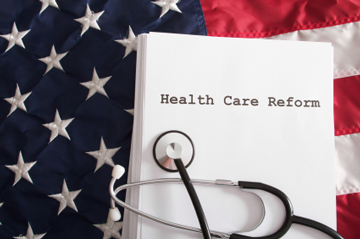
The federal government can’t make you buy health insurance, ruled a United States Court of Appeals.
The appeals court for the 11th Circuit in Atlanta ruled 2 to 1 that Congress exceeded its power under the Commerce Clause of the U.S. Constitution by requiring Americans to buy health insurance.
“What Congress cannot do under the Commerce Clause is mandate that individuals enter into contracts with private insurance companies for the purchase of an expensive product from the time they are born until the time they die,” wrote the two judges who struck down the healthcare reform law’s individual coverage mandate.
The dissenting judge’s argument: For decades the Supreme Court has set precedents expanding the scope of the Commerce Clause giving Congress the authority to regulate large areas of the national economy.
Stage is set for Supreme Court battle
The 11th Circuit Court’s ruling conflicts with one from the U.S. Appeals Court for the 6th Circuit in Cincinnati, which ruled the coverage mandate was constitutional.
The conflicting rulings practically guarantee the law will go before the Supreme Court for review. But that likely won’t happen until its term starting in October, which means a ruling could be handed down before the November 2012 presidential election.
Rest of the law upheld
While the new ruling delivers a blow to the individual coverage mandate, it did uphold the rest of the healthcare reform law, of which some of the requirements have already been implemented — like allowing children to stay on their parents’ insurance plans until age 26 and the ban on lifetime coverage limits.
The 11th Circuit Court’s ruling unanimously reversed a lower court ruling that threw out the entire reform law.
But political and legal observers have suggested the law may not work at all if the individual mandate is struck down.
Our HR editorials undergo rigorous vetting by HR and legal experts, ensuring accuracy and compliance with relevant laws. With over two decades of combined experience in Human Resources thought leadership, our editorial team offers profound insights and practical solutions to real-world HR challenges. This expertise not only enhances the credibility of our content but also makes HRMorning a dependable resource.
For more information, read our editorial policy.
Why do we need your credit card for a free trial?
We ask for your credit card to allow your subscription to continue should you decide to keep your membership beyond the free trial period. This prevents any interruption of content access.
Your card will not be charged at any point during your 21 day free trial
and you may cancel at any time during your free trial.
During your free trial, you can cancel at any time with a single click on your “Account” page. It’s that easy.

